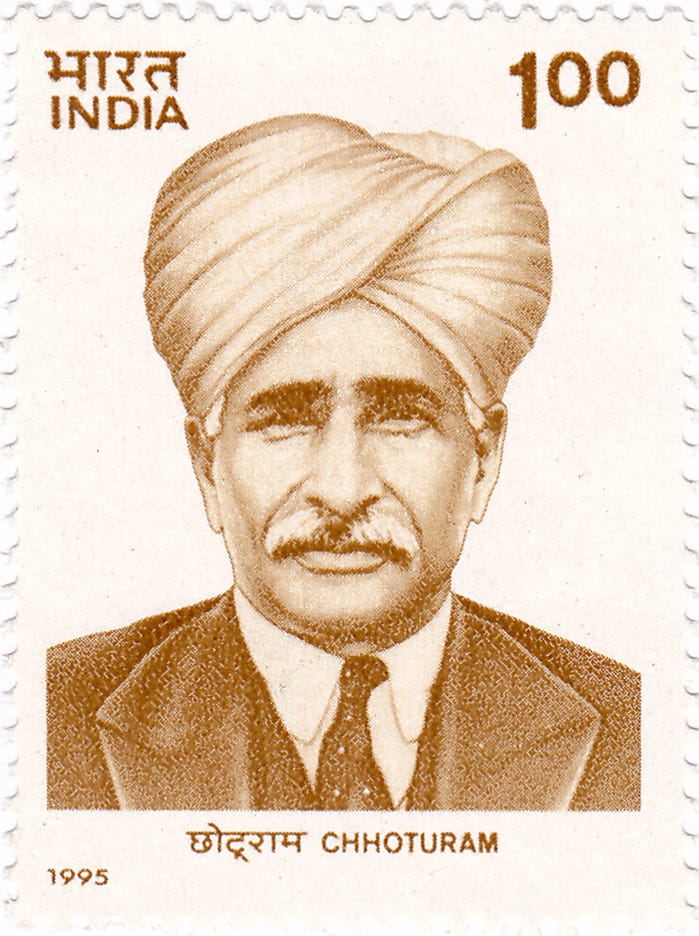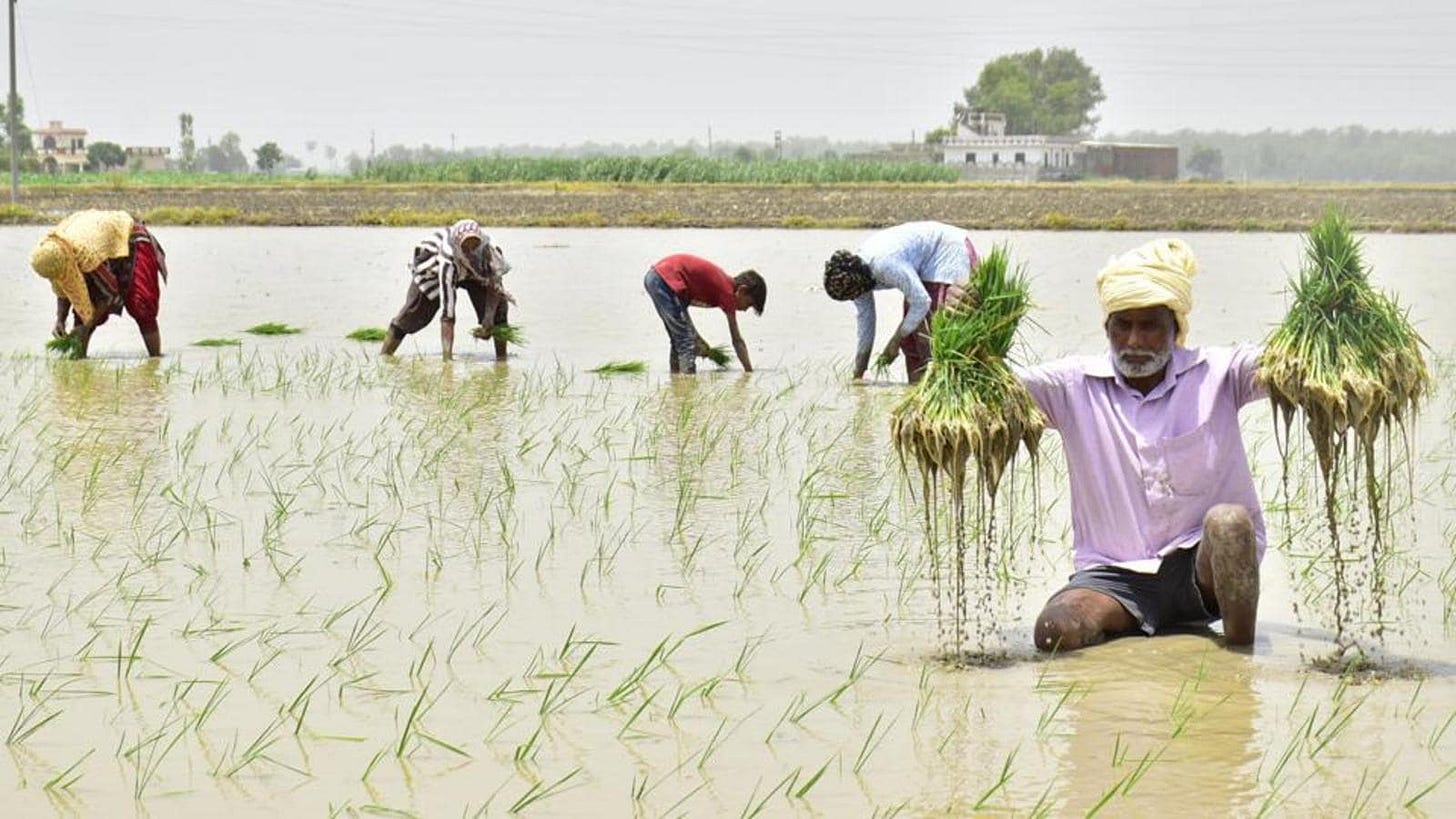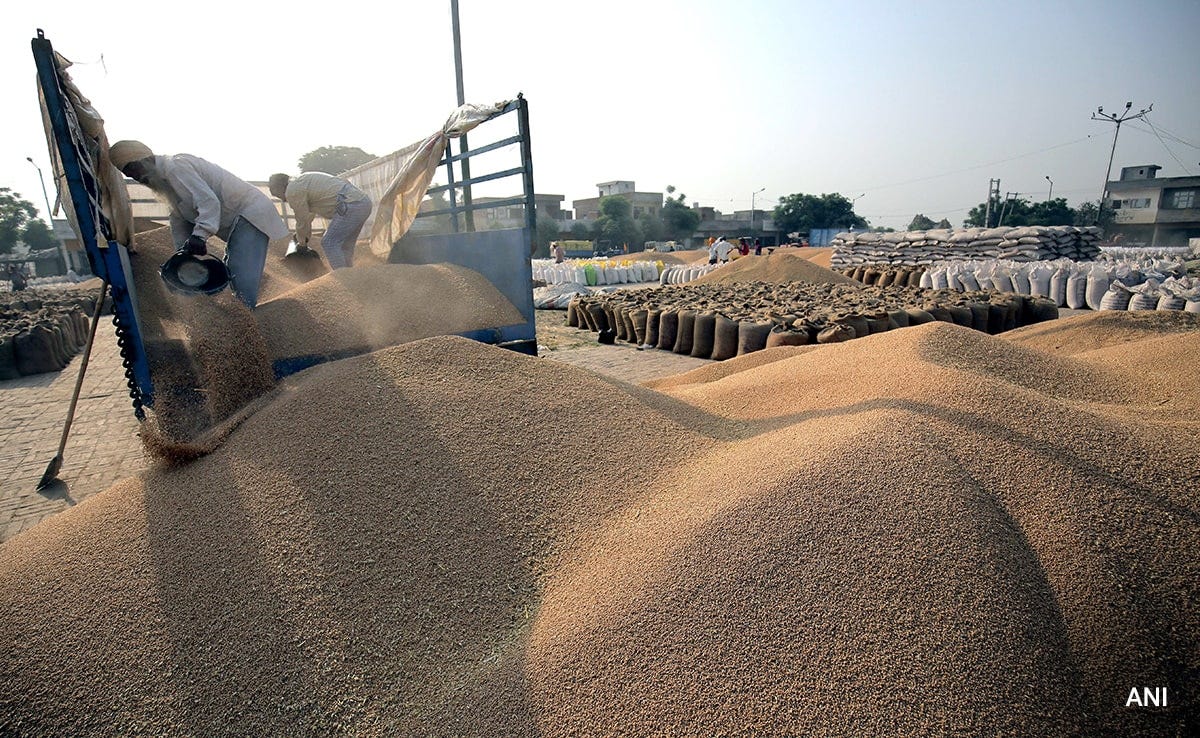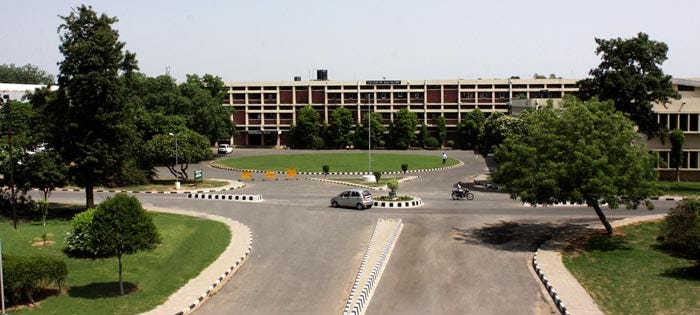Long Live Sir Chhotu Ram— and the Farmers' Debt
Settlement and Waiver of Agricultural Debt in Punjab: Rhetoric versus Reality.
Remembering Sir Chhotu Ram on his Birth Anniversary
On this auspicious day, the 24th of November, we commemorate the birth anniversary of Sir Chhotu Ram, a visionary leader and a beacon of hope for the agrarian community in the pre-partition era of united Punjab. His unwavering dedication to the welfare of farmers cemented his legacy as a venerated icon not just in Punjab, but also in Haryana and Western Uttar Pradesh. In an epoch marred by agricultural distress and exploitative practices, Sir Chhotu Ram emerged as a messianic figure, enacting groundbreaking legislations that brought significant respite to the debt-laden farmers of his time. As we delve into the contemporary issue of agricultural debt in Punjab, it is imperative to seriously reflect upon Sir Chhotu Ram's enduring ethos, which continues to inspire and guide the agrarian community in their ongoing struggles and triumphs.
The Burgeoning Farm Debt in Punjab
The escalating farm debt in Punjab remains a pressing concern, drawing attention not just from economists and sociologists but also commanding significant focus from both central and state governments. In the political arena, this issue often becomes a hot topic, especially during the run-up to elections, be it for the Lok Sabha or the Vidhan Sabha. While fragmented farmer and agricultural labour organisations have intermittently staged protests, the magnitude of this issue has somewhat diminished in public discourse following the extraordinary agitation against the three central farm laws. Even after the repeal of these controversial laws, the critical issue of farm debt has not regained the spotlight it demands.
In 2021, prior to the Congress government's debt-waiver scheme, the official figures indicated a staggering ₹71,305 crore of farm debt within the organised sector, burdening approximately 15 lakh families in Punjab. A recent NABARD report, presented in the Lok Sabha in August 2023, further underscores this predicament. It reveals that each farmer family in Punjab owes an estimated Rs 2.95 lakh to financial institutions, spread over 24,92,663 loan accounts. This statistic places Punjab's farmers as the most indebted among 28 states. Consequently, despite previous debt waivers, the total debt in the organised sector could still be in the vicinity of approximately Rs 73500 crore. It is critical to note that this figure does not encompass the debts from the unorganised sector, particularly those owed to arhtiyas (commission agents-cum-moneylenders), which is independently estimated to be around ₹30,000 crore.
Political Promises and Reality
Sensing the public pulse in an election year, the Akali-BJP government had enacted the Punjab Settlement of Agricultural Indebtedness Act, 2016. The widespread expectation was that this law would effectively extinguish the usurious debt on the head of the Punjabi farmers, piled by the greedy moneylenders. On the other hand, the Congress, which was seeking to wrest power in the state after being in political wilderness for a decade, promised an absolute and unconditional waiver of all farm debt.
In March 2021, the Punjab Finance Minister had revealed that the state had cumulatively waived loans amounting to ₹5,810 crore, covering 6.96 lakh small and marginal farmers. Recently, Punjab waived additional loans worth ₹590 crore outstanding in the accounts of landless famers and agricultural labour, including ₹520 crore in the hands of 2,85,325 members of various co-operative societies. Thus, not more than 9% of the outstanding loan from the public-sector institutions was actually waived.
2016 Act: An Instrument in Lender’s Hands
The Punjab Settlement of Agricultural Indebtedness Act, 2016, has turned out to be a disappointment for the poor and marginalised Punjabi farmers and agricultural labourers though it might have provided significant relief to the then beleaguered arhtiya community. A plain reading of this enactment would reveal that no straight-forward extinguishing of any usurious loan is mandated therein (section 3). It merely contains enabling provisions to set up district-level forums for an arithmetical evaluation of the outstanding amount, subject to the provisions of the instant 2016 law. In 2018, the district forums were converted into divisional-level forums, through an amendment, making the access for the poor debtor even more difficult.
The Act itself did not stipulate a specific, maximum rate of interest, which was to be subsequently notified under Section 4 by the State Government. It was accordingly notified initially on September 6, 2016, as the sum of the extant base lending rate of SBI plus the lending rate of Nabard to the co-operative societies. On the date of the notification, it was 9.3%+2.5%= 11.8%, and would currently be around 10.4%, the interest being simple interest.
Friction Between Farmers and Arhtiyas
The united front put up by the farmers and arhtiyas in the massive farmers agitation protest against the farm laws may create an impression that they are working as harmonious units in the rural, agricultural socio-economic society. However, the subterranean stresses continue to persist. The relatively large number of deaths related farmer suicides in Punjab bears a testimony to the potentially horrible dimension of this disaster looming large on the state.
The Way Forward
While it is not uncommon for political parties to make grand promises, the reality of Punjab's fiscal health presents a stark contrast. With the state's debt already surpassing ₹3.50 lakh crore, a figure that excludes the government-guaranteed loans raised by various boards and corporations, the state exchequer is tightly constrained. Given these financial limitations, it becomes clear that the state lacks the necessary resources and fiscal leeway to completely waive this substantial debt. The answer would, in theory, lie necessarily in diversification, remunerative MSP mechanism for other agricultural produce, promoting agro-based and agro-processing industries, scientific storage facilities and cold chains and perhaps the resurrection and refurbishment of the Punjab Relief of Indebtedness Act, 1934, the Punjab Debtor’s Protection Act of 1936, popularly called the Sir Chhotu Ram laws.
Ironically, the former has been repealed by the Punjab law of 2016. These two laws, much talked about but rarely invoked, not only capped the maximum rate of simple interest chargeable but also provided relief to the distressed, indebted landowners against sale of their land and attachment of the standing crops, in execution of the civil court decrees.
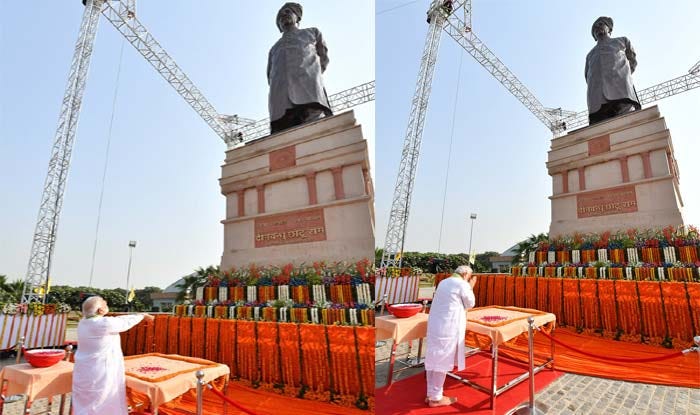
Honouring Sir Chhotu Ram's Legacy in Addressing Agricultural Debt
In acknowledging the strides made in alleviating the challenges faced by farmers, one cannot ignore the commendable initiatives undertaken by the Narendra Modi Government. The overarching goal of doubling farmers' income countrywide in five years, including measures such as direct cash transfers to farmers' accounts, represents a positive step forward. Similarly, the constructive engagement of the Aam Aadmi Party (AAP) Government in Punjab with farmers' organisations is noteworthy. These efforts, though laudable, must be seen in the context of the broader, systemic, and structural issues that continue to afflict the agricultural sector.
Indeed, what Punjab perhaps requires now are bold reforms akin to those introduced through the Bonded Labour System (Abolition) Act of 1976. This act was groundbreaking in its approach, effectively rendering bonded labour contracts and customs null and void, extinguishing bonded labour debts, and prohibiting any suits for their recovery. Such decisive legal and political measures are essential in addressing the deep-rooted issues in agriculture.
Until we witness such transformative initiatives, what we have at hand is merely cosmetic tinkering with a malady that demands not just palliative care but a radical overhaul. Such a fundamental shift in addressing agricultural debt would be the truest tribute to the memory and legacy of Sir Chhotu Ram. It would signify a commitment not just to temporary fixes but to lasting, meaningful solutions that honour the spirit of his endeavours for farmer welfare and equity in the agricultural sector.




